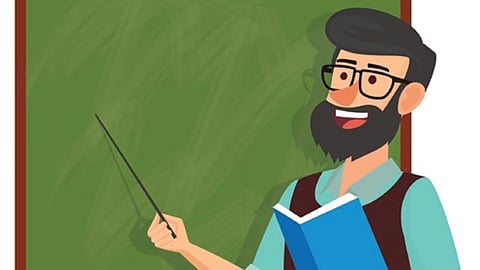

BENGALURU: Karnataka, known for its advancements in science and technology, has only 8,895 science and mathematics teachers for nearly 22 lakh students of Classes 1 to 5 in government primary schools.
The state has just 5,732 English teachers compared to 81,979 Kannada teachers for students in these classes, as per government data.
While officials claimed that guest teachers are hired to fill these gaps, educationists argued this is not a long-term solution. They warned that if this situation continues, many schools, especially in rural areas, could face closure.
According to experts, the consistent poor SSLC results that some districts or schools witness every year are an indirect, yet clear reflection of shortage of teachers at the primary level. When children are not taught properly, teachers and the government are at fault for failing to spark learning interest in them. The failure not only widens the urban-rural divide, but also the language divide, leaving many children behind.
Child rights activist Vasudev Sharma said that teaching in Kannada may help children grasp concepts faster. However, the severe shortage of subject teachers is crippling their learning.
“The current figures are shockingly low and reveal a systematic failure that stunts students’ potential,” he added.
When a child is not introduced to subject-based concepts at the primary level, it puts immense pressure on the teacher to make up for the gap. “The result is predictable: children are left to blindly memorise practical topics, with no real understanding,” Sharma said.
Sometimes, students are forced to switch from Kannada to English medium schools after completing Class 5 or 8. This is nothing short of a crime as children are thrust into an environment where they cannot learn and humiliated for their inability, Sharma said.
‘Only permanent teachers can have meaningful impact’
Child rights activist Vasudev Sharma said when children without the knowledge of basic concepts are taught in a new language, they go blank. “The result is often dropout, but no one cares about their future as the RTE only mandates compulsory education until Class 8,” he said.
Recently, nearly one lakh teachers were demoted because of the changes made by the government. Development educationist Niranjanaradhya VP said many teachers are unhappy with the government’s decision to restrict those appointed before 2016 to teach students of Classes 1 to 7 as primary school teachers, only to Classes 1 to 5.
A Department of Public Instruction official said the department has 35,000 guest teachers, who cater to 21.8 lakh students. Educationists rejected the reliance on guest teachers, calling it a flawed approach.
They argued that guest teachers, with no-long term commitment, can quit any moment, leaving students in the lurch. Only permanent teachers, with a permanent responsibility, can make a meaningful impact, they said.